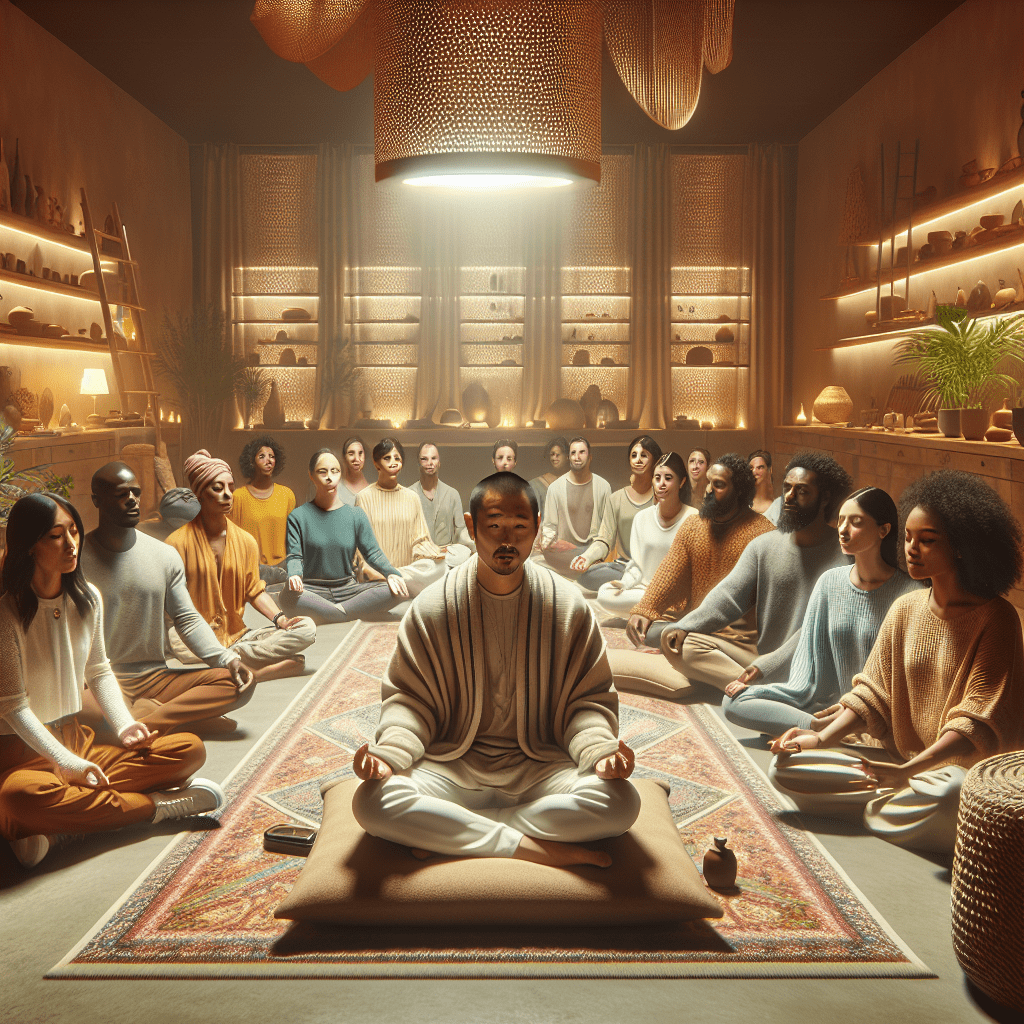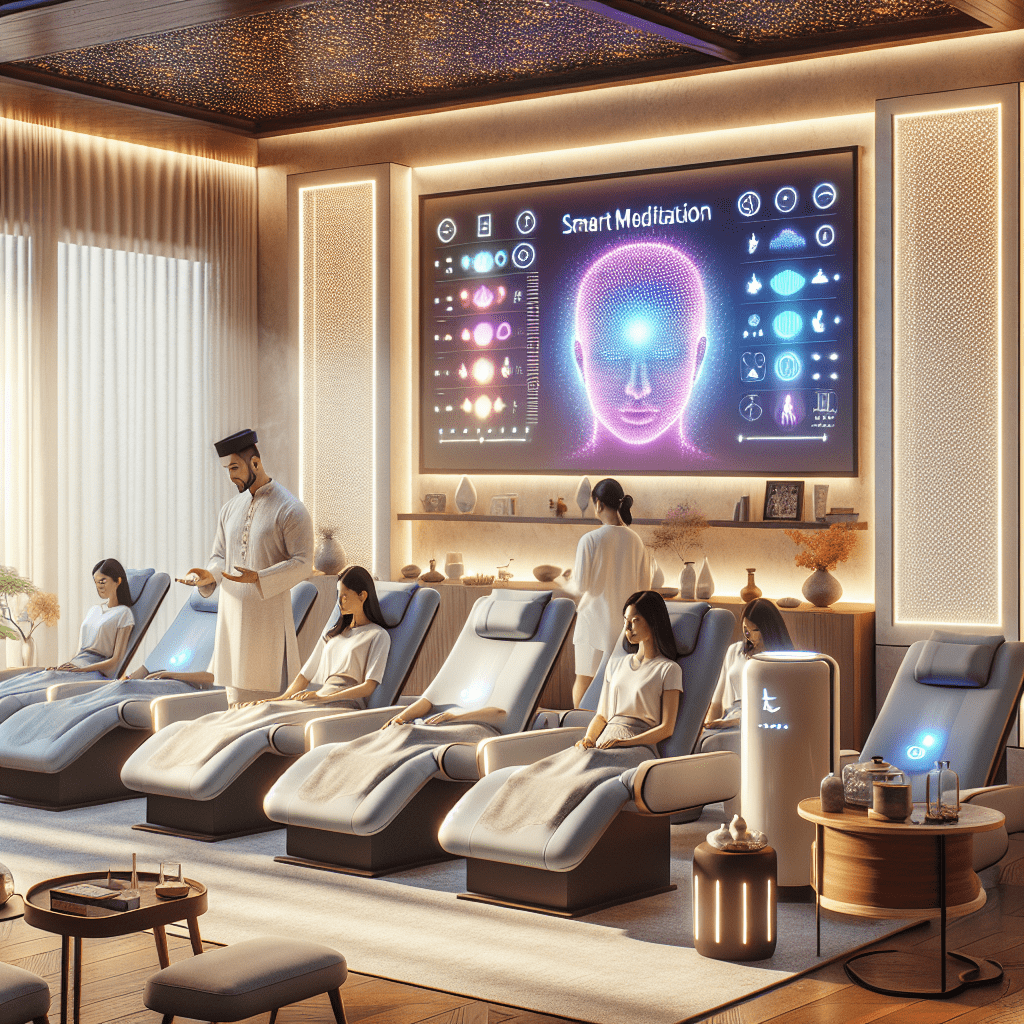
Prioritize your mental well-being daily. Enhance your life by nurturing your mental health with the Smart Meditation app. Break free from stress, alleviate anxiety, and enhance your sleep quality starting today.
Does Sleep Apnea Cause Anxiety And Depression?
Navigating the Waters Between Sleep Apnea and Mental Health
The buzz around the correlation between sleep apnea and mental health disorders such as anxiety and depression has been growing louder by the day. And rightfully so! Given the intricate ballet of hormones and neurotransmitters involved, it’s hardly a surprise that a hiccup in sleep patterns can throw the whole system off-kilter. So, let’s dive headfirst into this intricate dance and unravel the threads that connect sleep apnea to anxiety and depression.
Sleep Apnea: The Unseen Culprit?
Sleep apnea, particularly Obstructive Sleep Apnea (OSA), represents more than just an annoying snore fest. It’s like the unseen thief in the night, robbing you of your much-needed ZZZs. OSA occurs when your airway gets blocked repeatedly during sleep, leading to pauses in breathing. Sound terrifying? Well, it kinda is.
The daytime consequences of this nighttime nemesis are far-reaching – think fatigue, irritability, and cognitive fog. But wait, there’s more! Emerging research points towards a darker alley, suggesting that sleep apnea might just be cozying up with anxiety and depression, contributing to a vicious cycle that’s hard to escape.
Unpacking the Connection: Science Speaks
Now, let’s don the detective’s hat and peer into the evidence locker. There’s ample research to suggest that individuals grappling with sleep apnea often find themselves wrestling with anxiety and depression as well. But which came first, the chicken or the egg? That’s where it gets murky.
-
The Hormonal Havoc: Disrupted sleep wreaks havoc on the body’s stress regulation system. It’s like throwing a wrench into the works. Cortisol, the stress hormone, starts painting the town red, leading to heightened anxiety levels. Similarly, the imbalance in serotonin and other neurotransmitters, courtesy of poor sleep, can usher in the grey clouds of depression.
-
The Vicious Cycle: Battling with sleep apnea can feel like being stuck on a nightmarish merry-go-round. The sleep deprivation and fragmented sleep lead to emotional and mental turmoil. In turn, anxiety and depression can make it harder to fall asleep, further entrenching sleep apnea. Talk about being between a rock and a hard place!
Breaking Free: Shining a Light on Solutions
Alright, enough doom and gloom. Let’s talk breaking the cycle. Addressing sleep apnea can often feel like trying to untangle a Gordian knot, but with the right tools and persistence, it’s possible to make headway.
-
CPAP Machines & Beyond: Continuous Positive Airway Pressure (CPAP) machines are the gold standard in OSA treatment. They’re like the knights in shining armor, keeping your airways open and ensuring you get that sweet, uninterrupted sleep.
-
Lifestyle Tweaks: Sometimes, it’s the small changes that can make a big difference. Weight management, avoiding alcohol before bedtime, and sleeping on your side can be effective strategies to combat sleep apnea.
-
Mental Health Support: Don’t go it alone. Seeking support from mental health professionals can provide coping strategies for anxiety and depression. Cognitive-behavioral therapy (CBT), in particular, has shown promise in managing these conditions.
-
Getting Physical: Exercise isn’t just good for the body; it’s like a balm for the mind. Regular physical activity can help alleviate symptoms of both sleep apnea and mental health disorders.
Charting a New Course
In conclusion, the dance between sleep apnea, anxiety, and depression is intricate and complex, but it’s not a tango destined to last forever. With awareness, targeted treatments, and lifestyle adjustments, it’s possible to step out of the shadows of sleep apnea and into the light of better mental health. Remember, every journey starts with a single step. Don’t hesitate to reach out for help, and take that step towards a restful night and a brighter tomorrow.





